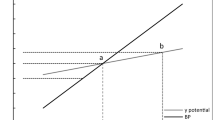Abstract:
The main aim of this paper is to provide a theoretical background and empirical evidence on the importance of the cultural sector for competitiveness and development of the regional economy. It is argued that the fall of barriers to trade and the movement of capital and labor in the European Single Market will result in a transformation of the forces shaping its spatial structure. Consequently, the theory of international trade looses its capacity to explain the volume and structure of exchange between regions, which are or belong to different states within the European Union. On the other hand, the theory of spatial distribution of economic activities becomes increasingly relevant for explaining movements of the factors of production and patterns of interregional specialisation.
Based on a case study, the paper analyses the influence of “soft” location factors, in particular cultural activities, on the competitive position of producers located in different urban regions. The “cultural multiplier” approach is used to measure direct income flows resulting from such activities while the concept of externalities is employed to analyse the indirect effects.
Similar content being viewed by others
Author information
Authors and Affiliations
Additional information
Received: March 1997/Accepted: July 1998
Rights and permissions
About this article
Cite this article
Dziembowska-Kowalska, J., Funck, R. Cultural activities as a location factor in European competition between regions: Concepts and some evidence. Ann Reg Sci 34, 1–12 (2000). https://doi.org/10.1007/s001680050123
Issue Date:
DOI: https://doi.org/10.1007/s001680050123




